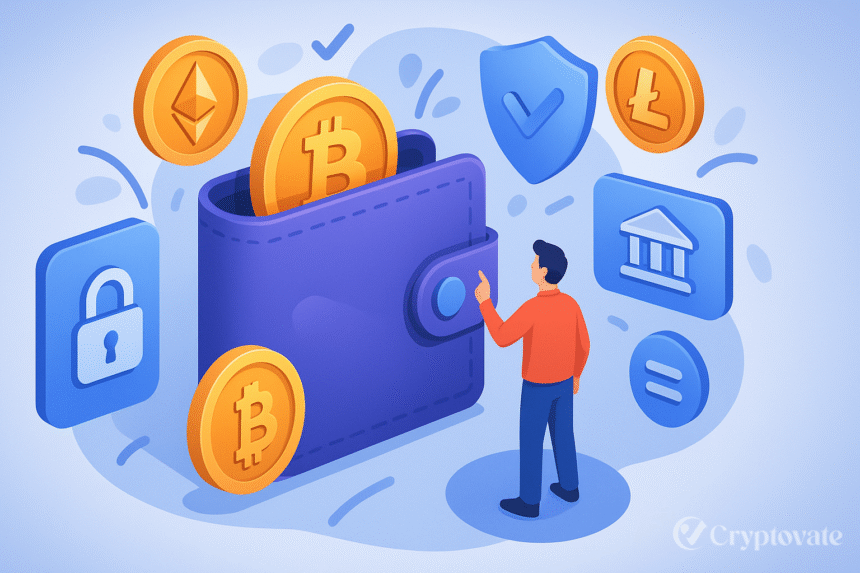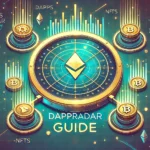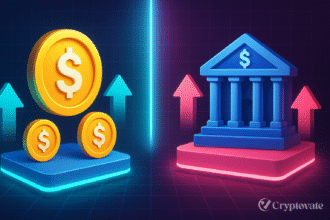– Ad –
| Getting your Trinity Audio player ready... |
The cryptocurrency market in 2025 is thriving, with Bitcoin, Ethereum, Solana, and a host of altcoins fueling innovation in decentralized finance (DeFi), non-fungible tokens (NFTs), and blockchain ecosystems. As crypto adoption grows, selecting the right crypto wallet is a critical step to securely manage your digital assets. A crypto wallet holds your private keys, the cryptographic codes that allow you to access your funds, facilitating sending, receiving, and engaging with blockchain networks. With increasing cyber threats, evolving wallet technologies, and diverse user needs, choosing a wallet that balances security, usability, and functionality is more important than ever.
Why Choosing the Right Crypto Wallet Matters
A crypto wallet is your gateway to the blockchain, serving as a secure vault for your private keys. These keys are essential for accessing and managing your cryptocurrencies, whether you’re holding Bitcoin for long-term investment, trading altcoins, or engaging in DeFi and NFT markets. A poor wallet choice could expose you to hacks, theft, or operational inefficiencies, while the right wallet enhances security, streamlines transactions, and supports your crypto goals. In 2025, wallets have advanced to offer multi-chain compatibility, DeFi integration, and user-friendly interfaces, making it crucial to align your choice with your specific needs—whether you’re a beginner, active trader, or long-term investor. By selecting a wallet thoughtfully, you can protect your assets and navigate the dynamic crypto landscape with confidence.
Types of Crypto Wallets
Crypto wallets come in several forms, each designed for distinct purposes. Understanding their strengths and weaknesses is the foundation of choosing the right one. Below is a detailed overview of the main wallet types available in 2025:
1. Hardware Wallets
- What They Are: Physical devices, often resembling USB drives, that store private keys offline in a “cold storage” format, disconnected from the internet.
- Pros:
- Exceptional security from offline storage, rendering them resistant to online hacks, malware, and phishing attacks.
- Support for thousands of cryptocurrencies, including major coins like Bitcoin and Ethereum, as well as newer chains like Solana and Polkadot.
- Durable, portable, and designed for long-term use.
- Cons:
- Upfront cost, typically ranging from $50 to $200, depending on the model.
- Less convenient for frequent transactions, as they require manual connection to a device.
- Risk of physical loss or damage, necessitating secure storage and backups.
- Best For: Long-term investors or those holding significant crypto amounts who prioritize security.
- Examples: Ledger Nano X, Trezor Model T, BitBox02.
2. Software Wallets
- What They Are: Digital applications or programs, known as “hot wallets,” that run on internet-connected devices like computers, smartphones, or browsers.
- Types:
- Desktop Wallets: Installed on a computer (e.g., Exodus, Electrum).
- Mobile Wallets: Smartphone apps (e.g., Trust Wallet, Coinbase Wallet).
- Web Wallets: Browser-based platforms (e.g., MetaMask).
- Pros:
- Free or low-cost, making them accessible to all users.
- User-friendly interfaces, ideal for frequent transactions and daily use.
- Seamless integration with DeFi platforms (e.g., Uniswap, Aave) and NFT marketplaces (e.g., OpenSea).
- Cons:
- Vulnerable to malware, phishing attacks, or device compromises if not properly secured.
- Requires strong device security, such as antivirus software and updated operating systems.
- Best For: Active traders, DeFi enthusiasts, or beginners seeking convenience and accessibility.
- Examples: MetaMask, Trust Wallet, Coinbase Wallet.
3. Paper Wallets
- What They Are: Physical documents, typically printouts, containing your public and private keys or QR codes, stored entirely offline.
- Pros:
- Extremely secure due to complete disconnection from the internet, eliminating online threats.
- Free to create using trusted key generation tools.
- Simple to set up for basic storage needs.
- Cons:
- Prone to physical damage (e.g., water, fire) or loss, requiring careful storage.
- Inconvenient for regular transactions, as keys must be manually entered or scanned.
- Risk of errors during creation if not generated securely.
- Best For: Ultra-secure, long-term storage for users who rarely access their funds.
4. Custodial Wallets
- What They Are: Wallets managed by third-party platforms, such as cryptocurrency exchanges (e.g., Binance, Kraken, Coinbase).
- Pros:
- Easy to use, often integrated with trading, staking, or lending features.
- Ideal for beginners who want a seamless experience without managing private keys.
- Often include customer support and recovery options.
- Cons:
- Users do not control their private keys, relying on the platform’s security.
- Susceptible to platform hacks, downtime, or insolvency risks.
- May charge fees for transactions or withdrawals.
- Best For: New users or those prioritizing convenience over full control.
Key Factors to Consider When Choosing a Crypto Wallet
To select the best wallet for your needs in 2025, evaluate these critical factors to ensure it aligns with your goals and risk tolerance:
1. Security
Security is the cornerstone of any crypto wallet. Prioritize wallets with:
- Two-Factor Authentication (2FA): Adds an extra layer of login protection, such as a code sent to your phone or email.
- Multi-Signature (Multi-Sig) Support: Requires multiple approvals for transactions, reducing the risk of unauthorized access.
- End-to-End Encryption: Protects data during transactions and storage.
- Hardware wallets are the gold standard for security, while software wallets require robust device protection, such as antivirus software, firewalls, and secure passwords. Research the wallet’s history for vulnerabilities, past breaches, or community-reported issues to ensure reliability.
2. Supported Cryptocurrencies
Not all wallets support every cryptocurrency or token. Verify that the wallet accommodates your portfolio, including:
- Major coins like Bitcoin, Ethereum, and Binance Coin.
- Emerging chains like Solana, Polkadot, or Cardano.
- Tokens for DeFi (e.g., ERC-20, BEP-20) or NFTs. Multi-chain wallets like Trust Wallet or MetaMask are ideal for users with diverse assets, offering flexibility across blockchain networks.
3. Usability
Ease of use varies by wallet and user experience level:
- Beginners should opt for intuitive interfaces, such as Coinbase Wallet or Trust Wallet, which simplify setup and transactions.
- Advanced users may prefer customizable wallets like Electrum, which offers granular control over transaction fees and settings.
- Test the wallet’s interface through demos or reviews to ensure it matches your technical comfort level.
4. Backup and Recovery
Reliable backup and recovery options are essential to avoid losing access to your funds:
- Most wallets provide a 12–24 word seed phrase during setup, which can restore your wallet on a new device.
- Test the recovery process during setup to confirm it works as expected.
- Store seed phrases securely offline, such as in a fireproof safe or on an engraved metal plate, to prevent theft or loss.
5. Cost
- Hardware wallets require an upfront investment ($50–$200), but their security justifies the cost for large holdings.
- Software and custodial wallets are typically free but may incur transaction or network fees.
- Consider long-term value: a secure wallet can prevent costly losses from hacks or errors.
6. DeFi and NFT Compatibility
For users engaging in DeFi or NFTs, choose wallets compatible with Web3 platforms:
- MetaMask and WalletConnect excel in connecting to DeFi protocols (e.g., Uniswap, Aave) and NFT marketplaces (e.g., OpenSea, Rarible).
- Ensure the wallet supports the blockchain networks relevant to your activities (e.g., Ethereum, Solana, Polygon).
7. Reputation and Community Trust
- Opt for wallets from reputable providers with active development teams and regular updates.
- Check user reviews, security audits, and community feedback on platforms like Reddit, GitHub, or crypto forums.
- Avoid obscure wallets with limited transparency or unproven track records.
Top Crypto Wallets for 2025
Based on current trends and features, here are five standout wallets for 2025:
- Ledger Nano X
- Features: Bluetooth-enabled hardware wallet supporting 5,500+ coins and tokens, with a mobile app for management.
- Best For: Long-term investors seeking top-tier security.
- Price: ~$150.
- MetaMask
- Features: Browser and mobile wallet with robust DeFi and NFT integration, supporting Ethereum and compatible chains.
- Best For: Web3 enthusiasts and active traders.
- Price: Free.
- Trust Wallet
- Features: Mobile-first wallet supporting thousands of tokens and DApps across multiple blockchains.
- Best For: Mobile users with diverse portfolios.
- Price: Free.
- Trezor Model T
- Features: Premium hardware wallet with a touchscreen interface and open-source firmware for transparency.
- Best For: Security-conscious users.
- Price: ~$200.
- Coinbase Wallet
- Features: Beginner-friendly wallet with seamless integration with Coinbase’s exchange and strong security features.
- Best For: New crypto users.
- Price: Free.
Tips to Keep Your Crypto Wallet Secure
Protecting your wallet is as important as choosing the right one. Follow these best practices:
- Never Share Private Keys or Seed Phrases: Store them offline in a secure location, such as a fireproof safe or engraved metal plate.
- Enable 2FA and Multi-Sig: Use additional security layers where available to prevent unauthorized access.
- Update Software Regularly: Keep wallet apps, firmware, and devices updated to patch vulnerabilities.
- Beware of Phishing Scams: Only interact with official wallet websites or apps, and verify URLs to avoid fake sites.
- Diversify Storage: Use a hardware wallet for long-term savings and a software wallet for active trading to minimize risk exposure.
- Use Trusted Devices: Avoid accessing wallets on public or shared computers, and ensure your device has up-to-date antivirus software.
Conclusion
Choosing the right crypto wallet in 2025 is a pivotal decision that hinges on your security needs, technical comfort, and crypto activities. Hardware wallets like Ledger Nano X or Trezor Model T offer unmatched security for long-term storage, while software wallets like MetaMask or Trust Wallet excel for DeFi, NFTs, and active trading. Custodial wallets suit beginners, but non-custodial options provide greater control. By prioritizing security features, verifying coin support, and following best practices like offline seed phrase storage, you can safeguard your assets and thrive in the evolving crypto landscape of 2025. Take the time to research, test, and choose a wallet that empowers you to manage your digital wealth with confidence.
FAQs
What is the safest crypto wallet in 2025?
Hardware wallets such as Ledger Nano X or Trezor Model T offer the highest security through offline storage, safeguarding against online hacks. Always purchase from official vendors to avoid tampered devices.
Can I use one wallet for all my cryptocurrencies?
Yes, multi-chain wallets like Trust Wallet or MetaMask support a wide range of coins and tokens across multiple blockchains, making them ideal for diverse portfolios.
Are custodial wallets safe for storing crypto?
Custodial wallets are convenient but less secure, as you don’t control your private keys. They’re suitable for small amounts or beginners but not recommended for large holdings due to platform risks.
How do I recover my crypto if I lose access to my wallet?
Most wallets provide a seed phrase during setup. Store this securely offline and use it to restore your wallet on a compatible platform if you lose access to your device.

















